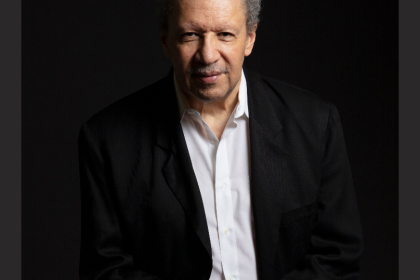Emotional intelligence stands as a cornerstone in the foundation of nurturing strong, enduring relationships, both personal and professional. It equips us with the ability to navigate the complex web of human emotions, fostering a deeper understanding of our own feelings as well as those of the people around us. In the realm of emotional intelligence, the capacity to recognize our missteps, particularly instances of rudeness, and the wisdom to address them through sincere apologies, are invaluable skills. These moments of contrition are more than mere social formalities; they are profound opportunities for personal growth and relationship healing.
This comprehensive guide is designed to lead you through the nuanced process of crafting apologies that resonate with sincerity and foster genuine reconciliation. By embracing the principles laid out in this guide, you will learn not only to articulate your remorse effectively but also to imbue your words with genuine emotion and intention. As we embark on this journey together, remember that mastering the art of apologizing for rudeness is a pivotal step toward achieving greater emotional intelligence, ultimately paving the way for healthier, more resilient relationships.
Understanding Emotional Intelligence and Rudeness
Emotional intelligence involves being aware of our emotions, managing them wisely, and recognizing the feelings of others to guide our interactions. Rudeness, whether intentional or accidental, can hurt relationships and tarnish our reputation. Recognizing when we’ve been rude and taking steps to make amends is crucial for personal growth and relationship maintenance.
The Importance of Apologizing
Apologizing for rudeness is not just about saying “I’m sorry”; it’s about acknowledging the impact of your actions on others and taking responsibility. A sincere apology can heal wounds, rebuild trust, and demonstrate your commitment to personal improvement and respect for others.
How to Apologize Sincerely
Reflect on Your Actions
Before apologizing, take a moment to reflect on what happened. Consider the circumstances that led to your rudeness and how your actions may have affected the other person. This self-reflection is crucial for a sincere apology.
Acknowledge Your Mistake
Start your apology by clearly acknowledging your mistake. This shows the other person that you understand the gravity of your actions and are not trying to excuse your behavior.
Express Regret
After acknowledging your mistake, express genuine regret for your actions. Let the other person know that you understand the impact of your rudeness and that you feel remorseful.
Make Amends
If possible, offer to make amends for your behavior. This could involve taking specific actions to rectify the situation or simply promising to behave better in the future. Making amends shows that you are committed to repairing the damage caused by your actions.
Ask for Forgiveness
Finally, ask for forgiveness. This gives the other person the opportunity to process their feelings and decide whether they are ready to move past the incident. Remember, forgiveness cannot be forced; it is a gift that the other person may or may not choose to give.
Moving Forward
Apologizing for rudeness is just the first step. To truly master emotional intelligence, you must learn from your mistakes and strive to improve your behavior in the future. This involves developing a deeper understanding of your emotions, practicing empathy, and learning to communicate more effectively.
Practice Self-awareness
Become more aware of your emotions and how they influence your behavior. This can help you recognize when you’re at risk of being rude and adjust your actions accordingly.
Cultivate Empathy
Try to see situations from the other person’s perspective. This can help you understand their feelings and respond with kindness and understanding, even in difficult situations.
Improve Your Communication Skills
Effective communication is key to avoiding misunderstandings and expressing yourself clearly. Work on your listening skills, practice expressing your thoughts and feelings constructively, and learn to read non-verbal cues.
Mastering the subtle art of apologizing for moments of rudeness transcends the simple act of saying “I’m sorry.” It embodies the essence of emotional intelligence, reflecting a deep commitment to personal growth, empathy, and the nurturing of meaningful connections. This journey of self-improvement is grounded in reflection, requiring us to confront our flaws with honesty and humility. Sincerity in our apologies paves the way for healing, allowing us to mend the fissures our actions may have caused in our relationships.
By diligently following the steps outlined in this guide, each instance of rudeness is transformed from a potential relationship rift into a valuable lesson in empathy and understanding. This process not only facilitates the mending of bridges but also fosters an environment where growth and deeper connections can flourish. It is crucial to internalize that the ultimate goal transcends the mere act of apologizing. It involves a profound transformation into individuals who are more emotionally aware, compassionate towards others, and respectful in all our interactions.
As we navigate the complexities of human relationships, let us strive to embody the principles of emotional intelligence in every aspect of our lives. The journey towards becoming more emotionally intelligent, compassionate, and respectful individuals is ongoing, filled with opportunities for learning and becoming better versions of ourselves. Let us embrace this journey with open hearts and minds, committed to making each apology a step towards a more understanding and connected world.
This story was created using AI technology.















